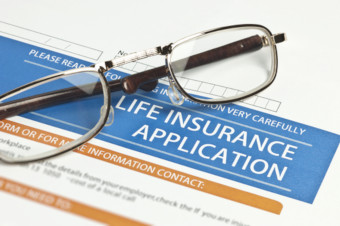What Are Life Insurance Classifications?
Free Life Insurance Comparison
Compare Quotes From Top Companies and Save
Secured with SHA-256 Encryption
Kristen Gryglik
Licensed Insurance Agent
Kristen is a licensed insurance agent working in the greater Boston area. She has over 20 years of experience counseling individuals and businesses on which insurance policies best fit their needs and budgets. She knows everyone has their own unique needs and circumstances, and she is passionate about counseling others on which policy is right for them. Licensed in Massachusetts, New Hampshire,...
Licensed Insurance Agent
UPDATED: Dec 4, 2023
It’s all about you. We want to help you make the right coverage choices.
Advertiser Disclosure: We strive to help you make confident insurance decisions. Comparison shopping should be easy. We are not affiliated with any one insurance provider and cannot guarantee quotes from any single provider.
Our insurance industry partnerships don’t influence our content. Our opinions are our own. To compare quotes from many different insurance companies please enter your ZIP code on this page to use the free quote tool. The more quotes you compare, the more chances to save.
Editorial Guidelines: We are a free online resource for anyone interested in learning more about insurance. Our goal is to be an objective, third-party resource for everything insurance related. We update our site regularly, and all content is reviewed by insurance experts.
UPDATED: Dec 4, 2023
It’s all about you. We want to help you make the right coverage choices.
Advertiser Disclosure: We strive to help you make confident insurance decisions. Comparison shopping should be easy. We are not affiliated with any one insurance provider and cannot guarantee quotes from any single provider.
Our insurance industry partnerships don’t influence our content. Our opinions are our own. To compare quotes from many different insurance companies please enter your ZIP code on this page to use the free quote tool. The more quotes you compare, the more chances to save.
On This Page
Perhaps you’ve heard of terms like “Preferred” or “Standard” as it applies to life insurance ratings and have scratched your head.
What do these ratings mean, and more importantly, how do they affect you?
Stick with me for a few minutes and we’ll answer these questions and more.
Life Insurance Ratings and Premiums

The reason life insurance classifications are important is because your health classification affects your premium. The better your rating, the lower your premium.
Most life insurance carriers have between 12 to 15 health classifications which may look something like this.
- Preferred Plus – The best category (only about 5% of people qualify for Pref. Plus)
- Preferred – Second best, an excellent rating
- Standard Plus – Better than average health
- Standard – An applicant in “Average” health and no other risk factors may fall into this class
These top four health classifications are generally given to those individuals in average or better than average health with no other risk factors such as tobacco use or hazardous hobbies, or travel.
Enter your ZIP code below to view companies that have cheap insurance rates.
Secured with SHA-256 Encryption
Table Rates & Higher Premiums
Then below Standard, you have what’s called Table Ratings. These are all substandard ratings, so a company may still approve you at a substandard rating which is still an approval, so that’s good, but your premium increases.
Most companies have 8 to 10 table rates and are typically referred to by letters or numbers. For example, if a client was approved one level below Standard, this would be called Table A or Table 1.
How Much Does My Health Classification Affect My Premium?
Generally speaking, most companies charge about 25% premium for each lower health classification, so if you pay $100 a year for the best class, the same individual at the same age and gender who gets a preferred rating, one class down from preferred class, might pay about $125.
The same holds true when you get into the substandard table rating. At a standard rating, if you pay $200 for that, you might pay $150 for table 2 or table B because that’s two tables at 25% each.
RELATED: 5 Critical Tips You Must Know Before Buying Life Insurance
What Affects My Health Classification?
The primary factors affecting your rating will be your:
- Health
- Family History of Heart Disease or Cancer
- Hazardous Activities (High risk sports, occupation or travel outside the U.S.)
How Health Affects your Classification
In most cases, your health classification will not be affected by health incidents that happened over ten years ago, unless it was a major medical condition, such as cancer, heart attack or stroke.
But, if you had pneumonia twelve years ago and was briefly hospitalized for it and have had no problems since, you can probably be certain that there will be no effect on your rating for that with most companies.
If you just were hospitalized with pneumonia six months ago, you could see that with that being more recent, that could give more cause for alarm to the insurance companies and they could possibly rate you down a bit for that. Generally speaking, though, you get downgraded for things like high blood pressure, high cholesterol, diabetes, being overweight.
The Affect of Family History on Your Rating
You can also be downgraded for things somewhat out of your control, like a family history of heart disease or cancer. For example, a 30-year-old in perfect health, whose never been hospitalized, never taken medication, can still be downgraded as much as two health classes, all the way down to standard plus, if both of his parents died of cancer prior to age 60.
It may seem unfair, seeing as how he is in great health, but genesis has proven that there is a higher likelihood of getting cancer in individuals who have had parents with cancer.
So, yes it is hereditary and yes the insurance companies will penalize you for that.
Enter your ZIP code below to view companies that have cheap insurance rates.
Secured with SHA-256 Encryption
Hazards – Dangerous Travels, Occupation or Hobbies
Other non-health related things you could be penalized for would be hazardous activities, such as skydiving, being a pilot, scuba diving below 100 feet, cliff diving and so on.
You need to put yourself in the insurance company’s shoes and think that anything that could increase your likelihood of premature death is something that they will potentially ask about on their applications and penalize you for.
So, if you travel three months out of the year to a remote region in China that is not modernized, this could be cause for alarm, possibly a penalty and possibly even a decline. Our last thing that the insurance company looks at is your occupation. You could be penalized for a very hazardous occupation.
What Can I Do To Get A Better Health Classification?
In most cases, there’s not much you can do to improve on your health classification, unless, of course, you’ve been rated as a smoker. In this case, you can quit smoking, wait one year and then reapply as a nonsmoker.
Sometimes there are small thresholds to getting you into a better rating, such as with height and weight. If you are five feet, ten and need to weigh under 190 pounds to get a preferred plus rating with a company, and you only weigh 194 pounds, you might make the effort to diet and exercise for a couple of weeks before taking your exam to try to get the best health class.
Remember, it could save you about 25% by getting one class better, so it’s worth the effort.
A lot of agents won’t know what those thresholds are, but there are thresholds for how high your cholesterol can be, how much you can weigh, thresholds for how often you can smoke a cigar and various factors like this determining your health classification, so be sure you use an independent agent like me, who can explain the difference to you between the different companies and help you apply to the company who will give you the best rating, or help you come up with a plan to get you into a better rating.
A special note on losing weight: A lot of people tell me that they would like to postpone applying for life insurance because they want to lose 10-15 pounds. In many cases, this could help my client, but in many cases, it may not.
RELATED: Check Sample Life Insurance Rates by Age (No Personal Info Required)
It could help in the situation that I mentioned above, where you just need to lose a few pounds and then you fall under a better health classification, but there’s a chance that you need to lose more than 10-15 pounds to get the better health classification, so even if you take the time to lose ten pounds, you still might not get that better rating.
Also, what none of my clients know is that insurance companies understand that some people try to lose weight quickly before they apply, so they only give you credit for half of your weight loss within the last year.
In other words, if you’ve lost 30 pounds in the last year, they’re only going to give you credit for fifteen pounds of that and if you weigh 200 pounds now, they’re going to treat you like a 215 pound individual.
Again, this may seem unfair, but the odds say that many individuals who lose large amounts of weight in a short period of time will gain that weight back.
As always, if you have any questions, call us at the office at 888-603-2876 or to get a quote, please use our instant life insurance quote form on the right. Thank you.

Enter your ZIP code below to view companies that have cheap insurance rates.
Secured with SHA-256 Encryption
Kristen Gryglik
Licensed Insurance Agent
Kristen is a licensed insurance agent working in the greater Boston area. She has over 20 years of experience counseling individuals and businesses on which insurance policies best fit their needs and budgets. She knows everyone has their own unique needs and circumstances, and she is passionate about counseling others on which policy is right for them. Licensed in Massachusetts, New Hampshire,...
Licensed Insurance Agent
Editorial Guidelines: We are a free online resource for anyone interested in learning more about insurance. Our goal is to be an objective, third-party resource for everything insurance related. We update our site regularly, and all content is reviewed by insurance experts.


